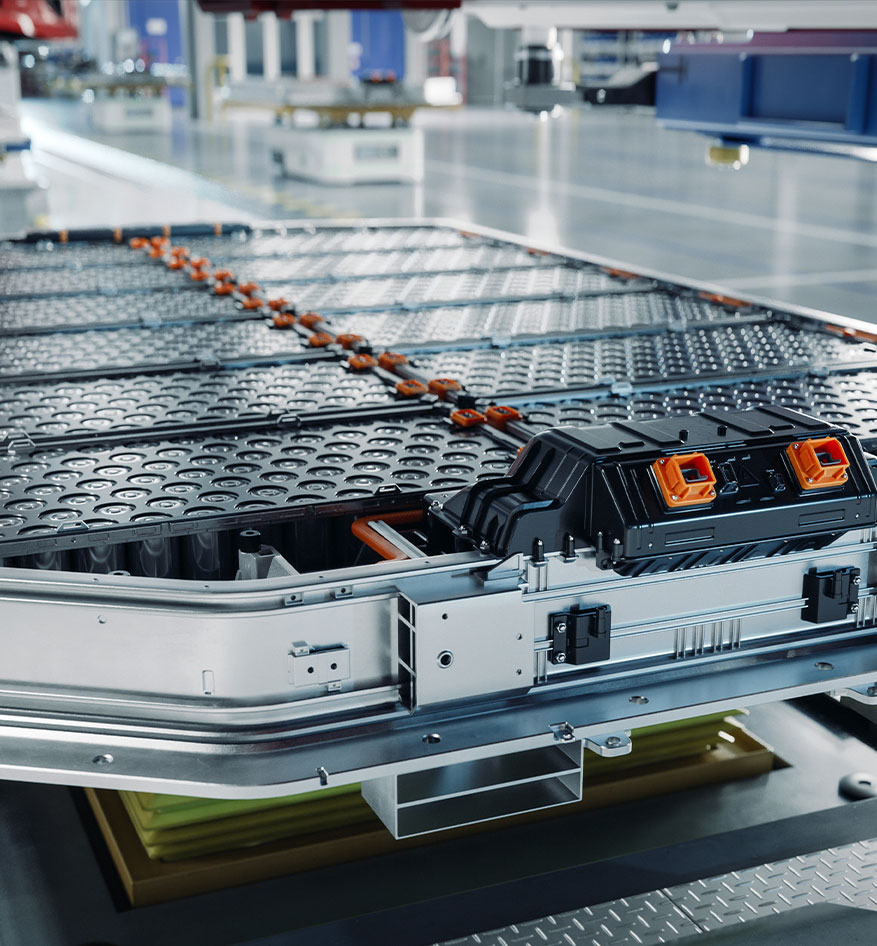EV data reveals battery technology is critical for adoption
Cox Automotive’s latest Insight Quarterly (IQ) report shares new EV data, including sales trends, consumer perceptions and the barriers preventing electric vehicle adoption.
In this article, we’ll focus on the report's key findings for OEMs, while demonstrating how effective EV battery technology can help tackle ongoing challenges.
Discover more content...
Sales and consumer barriers: Latest EV data
Labour’s ZEV mandate consultation, announced late last year, have left the industry hoping for a relief on the 2035 trajectory. But with no expected change to the timeline, only potential financial adjustments, it’s vital that OEMs don’t take their foot off the accelerator when it comes to electrification.
Sales figures indicate we are heading in the right direction. Petrol vehicles have declined by 26.6% since 2020 and diesel vehicles have seen a 76% decline, accounting for just 6% of the market today. In contrast, electric vehicle data shows sales have surged by an impressive 560%, now reaching 979,000 vehicles on UK roads. This number is expected to grow further, capturing 36% of new car registrations and overtaking petrol as the leading fuel type by 2028.
Total percentage of new car registrations that are EVs

Despite growing sales, consumers are still facing barriers when it comes to switching. Cox Automotive’s survey of 2,000 motorists, supported by Regit, revealed that 79% of motorists have still not driven an electric vehicle. The report goes on to suggest this is largely down to consumers feeling there’s a lack of government initiatives (86%). However, transparency on EV battery health, lifespan, and recycling (68%) was another key blocker for motorists.
These findings, along with Statista data that shows consumers are concerned about the cost of maintaining (51%), and replacing (42%) batteries, highlight that EV battery technology is stalling mainstream adoption of electric vehicles.
How OEMs can ensure effective EV battery technology and drive adoption
The majority (87%) of those who made the switch to EVs, reported it met or exceeded their expectations, demonstrating widespread misinformation about electric vehicle performance.
The key to maintaining that performance, however, is effective EV battery technology. For many manufacturers, battery recycling, servicing, and repairs are new requirements, meaning the need for new skillsets and large investments if managing these internally. But, with the support of expert, data-backed partners who have experience handling the complete EV battery lifespan, costs can be kept low and OEMs can focus their resources elsewhere.

68%
of motorists report a lack of transparency on battery health, lifespan and recycling
What should OEMs prioritise to meet ZEV mandate pressures?
1) Educate consumers on EVs
With two in three (68%) motorists reporting a lack of transparency as a key blocker, it’s clear OEMs and dealers need to work together to provide better education.
From the true cost of ownership to debunking misconceptions, campaigns should be centred around real-life experiences, EV data and insight, and in-person demonstrations to show EV batteries can be serviced and repaired effectively, as well as sustainable options when they reach end of life.
2) Invest in effective EV battery technology
Rather than investing millions in upskilling staff and obtaining the technology needed to maintain, repair and service EV batteries themselves, OEMs should consider working with a partner already equipped to do so.
With a decade of knowledge and experience, EV Battery Solutions is a cost-efficient and effective partner. Using real-time data, expert technology and sustainable solutions, we can help prolong the lifespan of every EV battery. We understand that recycling batteries is costly, but it isn’t the only environmentally friendly route.
When units come to the end-of-life stage, our teams maximise the battery lifespan by repurposing its raw materials to remanufacture other batteries in the system, preventing them from going to landfill.
Cox Automotive’s latest EV data highlights that batteries aren’t just a small element to electrification; they’re the backbone of wider adoption.
Manufacturers who invest in better EV battery technology, infrastructure and sustainable solutions while building consumer trust, will lead the next era of mobility. Now is the time to rethink strategies and partner with the right service innovators to ensure success in 2025 and beyond.
Ready to future-proof your business? Get in touch today.
Let's take charge of the future, together
We’re transforming the in-life battery operations of the world’s leading automotive manufacturers. Get in touch to find out how.



